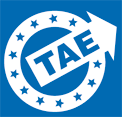TAE: No Covert Lobbying of the Legislative Branch by the Executive Branch! Statement on the Occasion of the European Court of Auditors' Special Report: Transparency Must Apply to Everyone
On the occasion of the presentation of the European Court of Auditors' Special Report 11/2025 "Transparency of EU funding for non-governmental organizations" (see: https://www.eca.europa.eu/de/publications?ref=SR-2025-11), the European Taxpayers Association (TAE) calls for greater transparency in the allocation and use of EU funds.
Both the Court of Auditors' recent special report and the uncovered lobbying cases are clear and unambiguous evidence that the existing rules are simply insufficient, said President Michael Jäger. It is not without reason that the European Court of Auditors "recommends" the following regarding the allocation of funds to non-governmental organizations (NGOs):
- Improve the guidelines for non-governmental organization classification.
- Improve the quality of information on EU spending in the financial transparency system.
- Monitor more strongly the respect for EU values.
The European Taxpayers Association fully supports these demands. Furthermore, the European association calls for consistent criminal and civil prosecution of any irregularities discovered and proven.
The Taxpayers Association (TAE) expressly welcomes the investigation into the EU Commission's secret contracts with NGOs. This scandal poses a huge reputational risk to the European Union among its citizens, damages mutual trust among EU institutions, takes its own rules for transparent lobbying to the point of absurdity, and, in our opinion, constitutes a misuse of taxpayers' money.
A complete investigation is in the democratic interest of all involved and in the public’s interest. Transparency and the rule of law must apply equally to everyone and cannot be justified by the supposed "good cause." Rules such as the separation of powers must be strictly adhered to. Violations must be consistently punished, and those responsible must be identified. Taxpayers have a right to know what is happening with their money and that it is being used properly and spent for its intended purpose.
Background: As media reports have revealed, the European Commission's Directorate-General for the Environment (DG ENV) and the Directorate-General for Climate Action (DG CLIMA) supported environmental organizations with large annual sums during the last legislative period. The funding of NGOs is not objectionable in itself. However, it has become known that there were publicly non-accessible contracts with NGOs for this purpose. These agreements apparently stipulated in detail the lobbying activities that NGOs were required to perform. One example is the paid lobbying against the Mercosur agreement: The targets of the NGO lobbying were the European Parliament and the EU Commission. According to media reports, this was clearly aimed at preventing the agreement. The paid influence on the European Parliament apparently went so far as to include specific provisions in EU legislation or to lobby a specific number of MEPs.
This is unacceptable and, in our opinion, a clear violation of the EU separation of powers between the Commission (executive) and the EU Parliament and the Council of Ministers (legislative).
It is a democratically deeply strange act when parts of the executive branch try to influence other parts of it, and in particular the European Parliament – the only directly elected EU institution.
In the course of its oversight function, the European Parliament's Committee on Budgetary Control succeeded in having the contracts disclosed after prolonged resistance and immediately criticized this shortcoming. At the time the contracts were concluded, Environment Commissioner Virginijus Sinkevičius and Frans Timmermans, Vice-President of the Commission for the Green Deal, were responsible for DG ENV and DG CLIMA.
Lobbying from within the EU Commission against the Commission's shared interests is not only a violation of democratic principles, but also disloyal to colleagues. Everyone has the right to their own opinion, but as an appointed and paid representative of the EU, one can expect that the objectives developed and officially proclaimed by the EU Commission will be fully supported.
Under no circumstances should one's own or preferred networks be favored in the allocation of funds in order to advance opposing interests. As taxpayers, we expect neutrality and objectivity. It is the task of the democratic opinion-forming process to ensure that decisions and projects are supported by a majority, rather than manipulating opinions. It would be downright hypocritical for the Commission and NGOs to undermine their own transparency standards and rules and then complain about public criticism, while themselves being known for taking harsh and vocal action against others.
The EU Commission's clear stance and position are more than justified. It has responded proactively and called on NGOs that receive EU funding to refrain from lobbying MEPs and other EU institutions.
Brussels/Munich, April 14th, 2025



